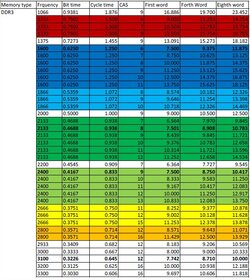Having been out of the PC hardware industry for many years I started to look into the new technologies and found M.2, Sata Express, better audio on mobos, etc.. One mobo I am hearing about is the quad channel memory which seems to have 2 DIMs on each side of the CPU and there is Memory being sold as quad channel or multi channel.
Any thoughts about this? Is it extreme and better performance?
Any thoughts about this? Is it extreme and better performance?
